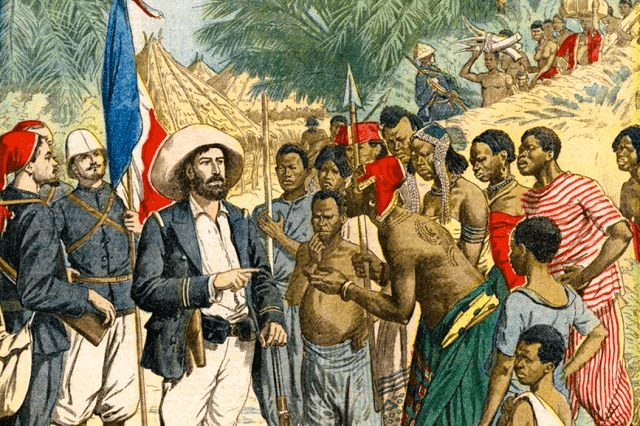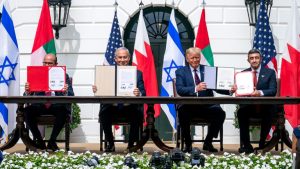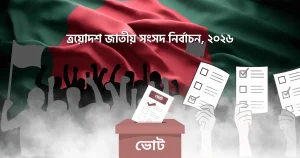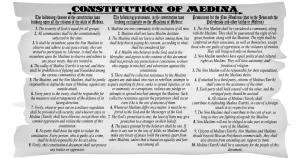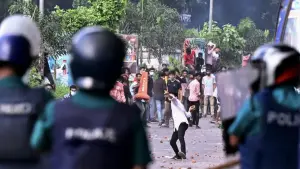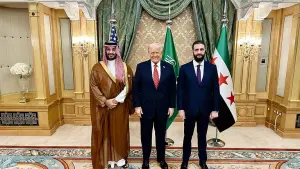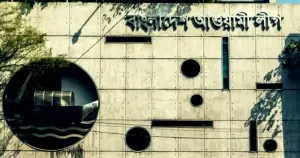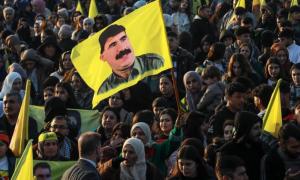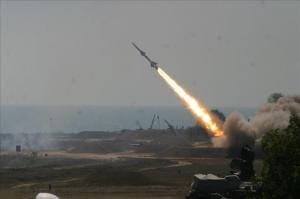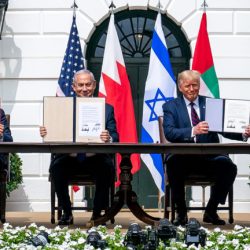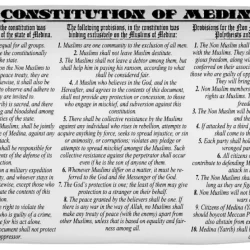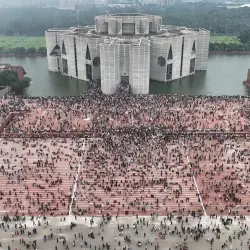The history of French colonialism in Africa spans almost a century and a half, leaving a profound impact on the continent’s political, economic, and cultural landscape. Although direct rule officially ended in the early 1960s, France’s influence over its former colonies has endured through intricate political and cultural connections. This article aims to explore the underlying reasons behind France’s imperial expansion and assess the nature of its present-day relations with its former African possessions. By delving into the legacy of French colonialism, we seek to illuminate its far-reaching implications for Africa’s current realities and future prospects.
French Colonialism in Africa: A Historical Overview
French involvement in Africa dates back to the 17th century, marking the beginning of their colonial presence on the continent. However, the height of French colonial expansion occurred during the 19th century, with significant events like the invasion of Ottoman Algiers in 1830 and the establishment of protectorates in Tunisia and Morocco before World War I. By 1930, France’s colonial influence had extended over vast territories, encompassing French West Africa, French Equatorial Africa, the Maghreb, Indian Ocean islands, and Djibouti in the Horn of Africa.
The process of French colonial rule in Africa was characterized by a complex interplay of contradictory elements. On one hand, the French presented their mission as a civilizing endeavor, aimed at bringing progress, development, and enlightenment to the indigenous populations. However, the harsh reality of colonialism revealed a different narrative, marked by violent conquest, economic exploitation, and sociocultural disruption. The colonized Africans were subjected to forced labor, expropriation of land, and the imposition of French cultural norms and language.
What is America’s Blackwater? How does it terrorize the World?
Throughout the colonial period, Africans responded to French rule in various ways. Some resisted the oppressive policies and fought for their rights and independence, while others adopted strategies of adaptation and accommodation to mitigate the impact of colonization on their lives and cultures. The process of decolonization gained momentum after World War II, with African leaders and intellectuals playing crucial roles in demanding independence and self-determination for their nations.
French Influence in African Politics: Past and Present
Over the years, France’s influence in African politics has been marked by both historical colonial legacies and contemporary efforts to engage with the continent. While France has attempted to improve its image in Africa, past political interference and armed interventions have left lingering resentment. One significant event that continues to shape perceptions is the Rwandan genocide in 1994, during which France’s actions have been a subject of criticism and controversy. As a result, France has taken steps to reform its military cooperation and engagements in Africa to address these concerns.
One notable aspect of France’s presence in Africa is its military operations. Operation Barkhane, launched in 2014, has been a key focus of France’s counter-terrorism efforts in the Sahel region, which includes countries like Mali, Burkina Faso, Niger, Chad, and Mauritania. This operation aimed to combat Islamist extremist groups and prevent the region from becoming a haven for terrorists. However, despite years of engagement, there have been questions about the effectiveness of such military interventions.
In July 2023, President Emmanuel Macron announced France’s decision to scale down its military operations in the Sahel region after eight years of involvement. The 5,100-strong task force of Operation Barkhane will be integrated into a broader international mission. This decision comes amid concerns about the effectiveness of military approaches and increasing anti-French sentiment in the region. The remaining troops in the Sahel will collaborate with other European nations as part of the Takuba Task Force, working alongside the armies of Mali and Nigeria in the fight against militants.
A simple guide to What is happening in Sudan
The French military presence in Africa has drawn attention and criticism from different perspectives. Some argue that it aims to maintain regional hegemony and stability, while others view it as a reminder of past colonial control. France’s involvement in the Sahel has faced challenges, including disputes with the ruling junta in Mali, which led to the decision to withdraw troops.
The withdrawal of French forces from Mali and the reevaluation of military engagement reflects an evolving approach to African politics. France seeks to shift from an exclusive military focus to a broader international coalition in collaboration with other European nations. The decision also underscores the complexities of the relationship between France and its former colonies and raises questions about the long-term effectiveness of military interventions in addressing the region’s challenges.
Françafrique: The Enduring French Influence on the African Continent
Françafrique, a term derived from France-Afrique, refers to the long-lasting political, security, economic, and cultural relations between France and its former African colonies in sub-Saharan Africa. This concept has its roots in France’s historical ties with its colonies and the continuation of influence even after granting independence to these countries. The term was coined by Félix Houphouët-Boigny, the first president of Ivory Coast, in 1955 to describe the close ties between his country and France. However, it was later pejoratively renamed Françafrique by François-Xavier Verschave in 1998 to criticize alleged corrupt and clandestine activities by Franco-African political, economic, and military networks, often referred to as France’s neo-colonialism.
Despite the passage of time and attempts by some French presidents to end this influence, Françafrique’s legacy remains deeply entrenched in the political landscape of many African countries. Economic and security agreements with France continue to play a significant role in the functioning of these nations. However, this dependency has raised questions about true independence and freedom for francophone countries in Africa.
Many of the political systems in these African countries were introduced by France around the time of independence. For instance, in some countries like Ivory Coast, France decided to replace the parliamentary system with a presidential regime, concentrating vast powers in the hands of the head of state. This concentration of power in the presidency has been a subject of criticism, as it leaves one person with significant authority, raising concerns about manipulation and democratic deficits.
How Sikkim became a part of India?
The enduring influence of Françafrique has not gone unnoticed, especially among the younger generations. Many young Africans express growing resentment towards France’s involvement in their countries’ affairs, challenging the legacy of colonialism and neocolonialism. Some have been critical of France’s role in determining the content of school textbooks, further highlighting the complexities of this relationship.
While some French presidents have announced plans to end Françafrique, the promises of change have often been met with skepticism. Analysts argue that these announcements have turned into ritualistic declarations, and the relationship between France and its former colonies remains deeply rooted. France’s economic and strategic interests in the region, as well as historical ties, continue to influence the dynamics of this relationship.
In recent years, criticism of Françafrique has intensified both in France and Africa. African countries are increasingly troubled by the ongoing influence of their former colonial power. Calls for a reset of the relationship have been heard in many African capitals, seeking a more equitable and autonomous engagement with France.
A Case Study: Guinea and the Lingering Impact of Colonialism
Guinea serves as a compelling case study of how the enduring effects of colonialism continue to shape post-colonial governance and political stability. Despite gaining independence in 1960, the country grapples with persistent political instability, as exemplified by a recent coup d’état. This turbulence underscores the complexities of managing a nation’s affairs after the colonial era and highlights the ongoing struggle for control over valuable natural resources in the region.
Since its independence, Guinea has experienced a series of challenges in establishing and maintaining stable governance. One key issue revolves around attempts by political leaders to extend their tenure in power, often through controversial constitutional amendments. President Alpha Condé, for instance, sought to adopt a new constitution to secure a third term as president despite widespread opposition and protests, further undermining democratic checks and balances in the country.
The referendum and legislative elections held in Guinea were boycotted by opposition groups, leading to accusations of illegitimacy. The situation escalated as clashes with security forces resulted in the loss of lives, and international electoral observers raised concerns about the credibility of the electoral process.
The heart of the controversy lies in President Condé’s desire to remove term limits that would have required him to step down from the presidency. This move sought to extend his rule, leading to a significant divide among Guineans and further contributing to political instability in the country.
রুয়ান্ডা গণহত্যার প্রেক্ষাপট ও ফলাফল
The legacy of colonialism also lingers in Guinea’s treatment of political prisoners. Historical records indicate that even after its brief invasion by Portuguese troops in 1970, the maltreatment of political prisoners persisted, reflecting continuities in legal practices between the colonial era and the post-colonial revolutionary regime. Such practices contribute to the representation of Guinea’s colonial heritage, a means by which President Sékou Touré sought to legitimize his state and rule.
Furthermore, Guinea’s political instability has implications for its response to pressing challenges such as the HIV/AIDS epidemic. Chronic political instability has been identified as a barrier to mounting an effective local response to the disease, affecting the country’s health sector and the well-being of vulnerable populations.
The recent coup in Guinea, where army officers arrested President Alpha Condé and dissolved the government and constitution, reflects the challenges faced by the country and the broader region in enforcing good governance and maintaining political stability. The Economic Community of West African States (ECOWAS) responded by suspending Guinea’s membership, yet the coup highlights the weaknesses of the regional body in addressing governance issues and promoting democratic norms.
legacy of French colonialism in Africa
The legacy of French colonialism in Africa is intricate and multi-faceted. While some progress has been made in reshaping the relationship between France and its former colonies, significant challenges persist. African countries continue to grapple with the ramifications of their colonial past, and France faces scrutiny for its role in shaping the continent’s present political landscape.
মরক্কোর জাতীয়তাবাদি আন্দোলন ও সুলতান মুহাম্মাদ
To move forward, it is crucial to foster a deeper understanding of historical complexities, empower African nations to make independent decisions and ensure mutual respect in international relations. Breaking free from the shadows of colonialism will require collaborative efforts to forge a new path that promotes African sovereignty, economic prosperity, and cultural richness. Only then can Africa truly embrace its future with agency and confidence.

